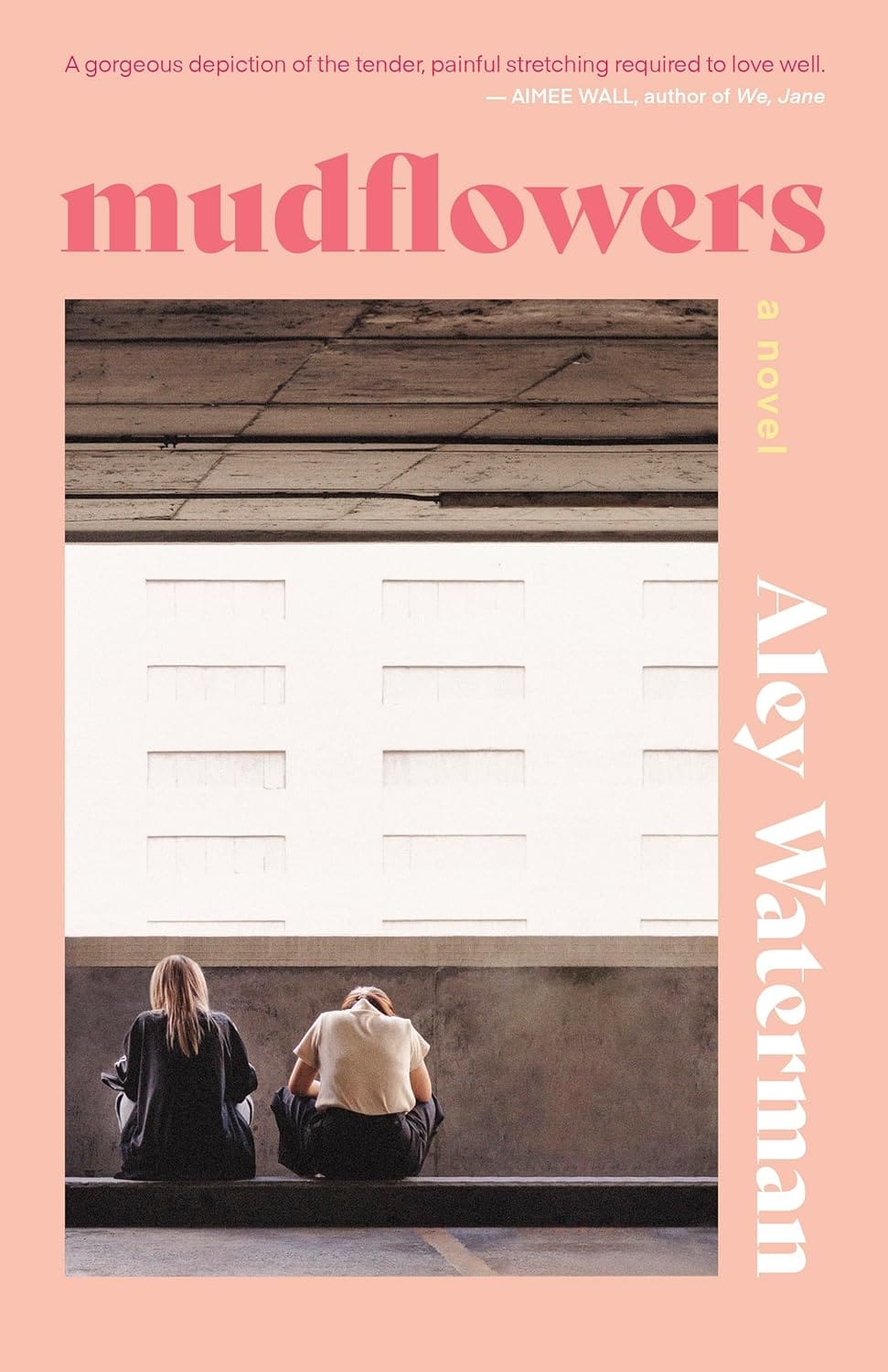Mudflowers
By Aley Waterman
Dundurn Press
September 2023, $24.99
Reviewed by Maggie Burton
Mudflowers begins with a quoted poem by Heather Christle about a person not knowing how to reconcile fake and real flowers: “I planted/the flowers among actual flowers/b/c what else can you do.” The narrator, Sophie, introduces the book with a simple explanation that sets the reader up for what’s to come: “I wanted so badly to love in a good way.” Through a stream of breathy interrogations, the reader is cradled in the lap of Waterman’s soft prose. A 27-year-old artist from Newfoundland, Sophie is making a life for herself in Toronto. The intensity of her experiences match the real-life pain that many twenty-somethings incur when a stabilizing love, a steady presence, threatens to become suddenly unavailable.
Sophie’s closest relationship is with a childhood friend, Alex. They grew up in Corner Brook, came of age in the context of Alex’s mom leaving his family and Sophie depending on Alex to help her

through adolescence. At one point, Sophie experiences the “Big Feeling,” desire, and she tries to contain it by peeing in a cup and hiding it behind her bed, leaving it to evaporate. Sophie seeks out philosophical conversations with herself and others, trying to figure out what the people around her are up to, asking questions like: “I had been wondering, What are a person’s responsibilities when they move toward or away from the most deeply felt parts of themselves?”
Soon, Sophie meets Maggie, a cool Toronto poet who looks like a combination of “one of the boys from the movie The Little Rascals and Isabella Rossellini.” Sophie feels a strong desire to become closer with her, but she’s also scared of what it means to want intimacy. Sophie and Maggie have awkward but meaningful interactions that see them “somehow developing intimacy and blunting possibility at once.” It doesn’t really work out as romance, but there is a type of love between them that is just as powerful.
I remember sitting in a Twentieth-Century American Novel class with Waterman at Memorial around 2010. She asked a question about one of the books, it might have been My Antonia by Willa Cather. Her question came out in this ethereal kind of way, where the words slipped through her teeth like water being spit back into a cup. Sophie speaks like this. Like Cather, who in 1918 wrote “[t]he feelings of that night were so near that I could reach out and touch them with my hand,” Sophie says of being near Maggie “[t]he nights she worked with me I didn’t talk to her, but each movement I made throughout my shift felt intentional, like I was moving my limbs through honey, too, like she was watching, even though she wasn’t.”
Eventually, Alex and Maggie become lovers. Sophie, unsure what to do with this new reality, cleaves herself off and takes some time to herself. When she returns, they attempt to make sense of their relationships. Alex and Maggie create a space for Sophie. They are a family now. It is a very moving depiction of alternative relationship structures and the power of secure attachment. Waterman thoughtfully explores how our relationships give meaning to our lives, and what it means to choose a family, to build something from scratch to help fill the void left, for example, by dead or absent parents.
Learning how to love the people who love us is an act of defiance against the voices inside our heads that say we are stupid, bad, immoral, whatever, just because we are not perfect. Loving well is the truest form of healing—it’s an integrating force that allows us to acknowledge the bad parts and take them alongside the good. For me, this was one of Mudflowers’ most important themes. And when things get to be too much, like when Sophie feels like “a dumb baby waiting for someone to pick me up,” that is indeed, all of us at times. And that is okay. Reminiscent of Sally Rooney and Otessa Moshfegh, of Virginia Woolf and Willa Cather, Mudflowers is a sparkling debut novel, a timeless meditation on the nature of love and desire, of loving, in a good way.
Maggie Burton lives in St. John’s with her four children where she works as a City Councillor, musician, and writer. Her first book of poetry, Chores, was published by Breakwater Books in 2023.
